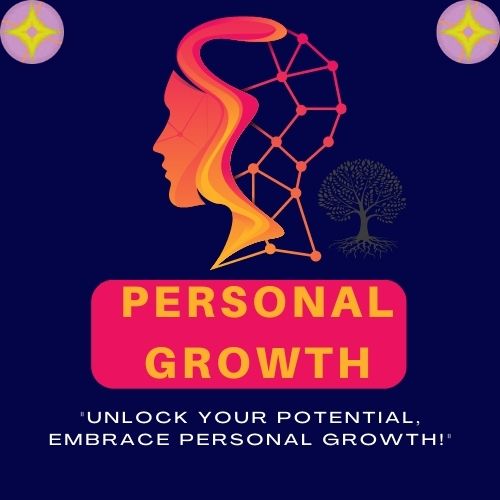12 Personality Development Skills to Improve Your Life: A Comprehensive Guide to Choosing the Right Skill Set
What are personality development skills?
Personality development skills encompass a broad spectrum of
attributes and qualities that contribute to an individual's overall growth,
effectiveness, and likability. These skills go beyond mere technical
proficiency and delve into the realm of emotional intelligence, interpersonal
dynamics, and self-awareness. In essence, they are the building blocks that
shape one's character, behavior, and the way they interact with the world. The
journey of personality development involves honing both soft skills, such as
communication and empathy, and hard skills, including time management and
resilience.
As we explore the facets of personality development skills,
it becomes evident that they are the key to unlocking personal and professional
success, fostering meaningful relationships, and navigating the complexities of
today's interconnected world.
Why are personality development skills important?
Personality development skills are crucial for several
reasons, playing a pivotal role in shaping individuals into well-rounded and
effective contributors to both personal and professional spheres. Firstly,
these skills enhance interpersonal relationships by fostering effective communication,
empathy, and collaboration, creating a positive social impact. Secondly, they
contribute to professional success by complementing technical expertise with
attributes like leadership, adaptability, and time management, making
individuals more versatile and valuable in the workplace.
Additionally, personality development skills empower
individuals to navigate challenges with resilience, promoting mental and
emotional well-being. Moreover, in a globalized and interconnected world, these
skills are essential for cultural competence and understanding, enabling
individuals to thrive in diverse environments. Overall, investing in
personality development skills is an investment in personal growth, career
advancement, and the ability to positively influence and connect with others.
In the dynamic landscape of personal and professional
development, cultivating a successful personality requires a thoughtful
selection of skills that contribute to holistic growth. This guide outlines a
systematic approach to help you identify and develop a diverse skill set that
aligns with your goals and aspirations.
1. Self-Assessment: Unveiling Your Inner Potential
Before embarking on
your journey to personal and professional success, take time for
self-reflection. Consider your interests, passions, and values. Identify your
strengths and weaknesses, and reflect on activities that bring you fulfillment.
This self-assessment lays the foundation for selecting a skill set that
resonates with your authentic self.
2. Define Your Goals: Charting Your Course to Success
Clearly define your
short-term and long-term goals. Break down larger objectives into manageable
steps. By understanding your goals, you can pinpoint the skills necessary for
achieving them. Whether it's a career milestone or personal development target,
a clear roadmap guides your skill set selection.
3. Research: Navigating Industries and Opportunities
Explore various
industries and professions. Identify skills in demand within your chosen field.
Stay informed about industry trends and emerging technologies. Research opens
the door to opportunities for growth and advancement, allowing you to make
informed decisions about skill acquisition.
4. Soft Skills: The Foundation of a Well-Rounded
Personality
Cultivate soft
skills such as communication, teamwork, leadership, and adaptability. These
skills are universally valuable and contribute significantly to personal and
professional success. Balancing technical skills with interpersonal abilities
forms the basis of a well-rounded personality.
5. Hard Skills: Technical Proficiency for Professional
Excellence
Acquire specific
technical or hard skills relevant to your chosen field. Stay updated on
industry advancements through workshops, courses, and certifications. The
mastery of technical skills enhances your expertise and positions you as a
valuable asset in your profession.
6. Balance: Harmonizing Personal and Professional Skills
Strive for a
balanced skill set that caters to personal, professional, and social dimensions
of life. This equilibrium ensures that you are not only excelling in your
career but also developing interpersonal and personal growth skills that
contribute to a well-rounded personality.
7. Networking: Building Bridges to Success
Connect with
professionals in your field of interest. Seek guidance from mentors and role
models. Attend industry events and conferences to expand your network.
Networking not only provides valuable insights but also opens doors to
collaborative opportunities and career growth.
8. Continuous Learning: The Key to Adaptability
Embrace a mindset
of continuous learning. Stay curious and open to acquiring new skills. Engage
in lifelong learning opportunities through reading, attending webinars, and
participating in skill-enhancing activities. Adaptability is a hallmark of a
successful personality.
9. Adaptability: Thriving in a Changing Landscape
Choose skills that
are adaptable and relevant across different scenarios. Industries and
technologies evolve, and being adaptable positions you to thrive in changing
environments. Embrace change as an opportunity for growth and development.
10. Passion: Fueling Your Journey with Purpose
Prioritize skills
aligned with your passion and interests. Genuine interest fuels sustained
motivation and success. When you are passionate about what you're learning, the
journey becomes more fulfilling, and success becomes a natural outcome.
11. Feedback: A Tool for Continuous Improvement
Seek feedback from
peers, mentors, and colleagues. Use feedback as a tool for improvement and
refinement of your skill set. Constructive feedback guides your journey and
helps you continually enhance your abilities.
12. Emotional Intelligence: Navigating Social Landscapes
Effectively
Develop emotional intelligence to navigate social situations effectively. Understand and manage your emotions and those of others. Emotional intelligence is a vital component of successful interpersonal relationships and leadership.
Follow us on our Facebook page for more of these types of posts.
Conclusion:
Building a successful personality is an ongoing and dynamic
process. By following these steps, you can craft a skill set that not only
propels you towards your goals but also contributes to your overall well-being
and fulfillment. Remember, success is a journey, and the right skill set is
your compass for navigating the path to a successful and thriving personality.



